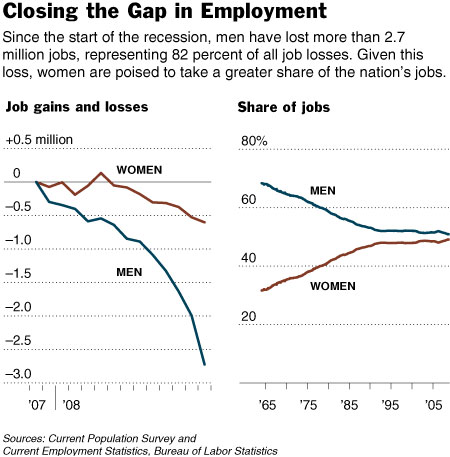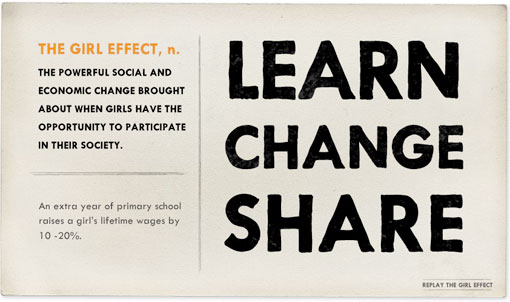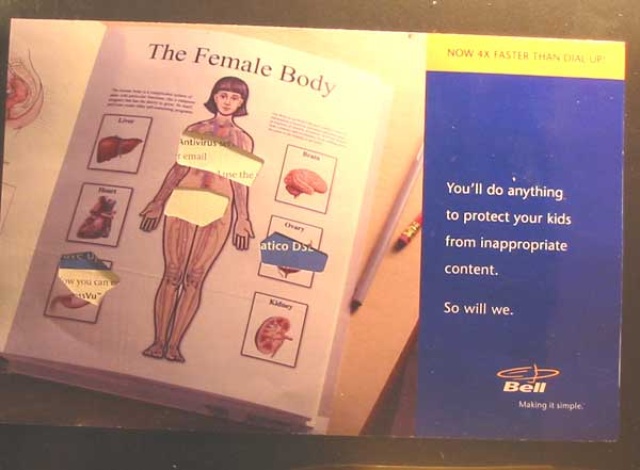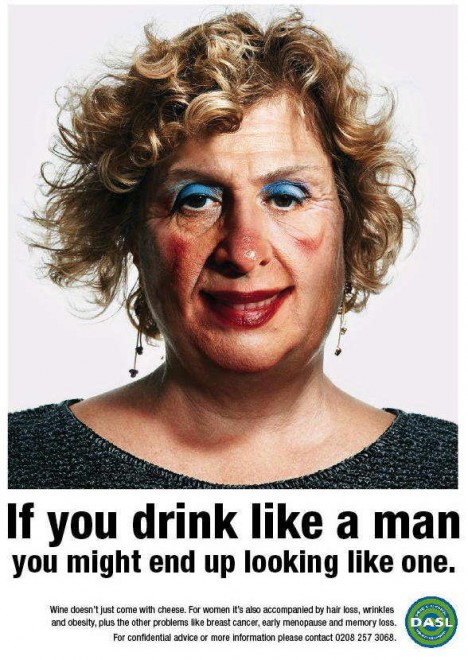Stephen W. sent in a link to a music video promoting the National Guard. He saw the video before a screening of Taken in Sioux Falls, SD. At the moment, the National Guard website (warning: noisy) features Kid Rock and Dale Earnhardt Jr. The opening graphics, set to a snippet of Rock’s Warrior, feature a military helicopter followed by a race car and then a picture of an anonymous African-American National Guard member with the rock star and car star:

A few clicks into the website leads you to this music video:
[youtube]https://www.youtube.com/watch?v=QeVt4j_T7-8[/youtube]
In the photographs made available, pictures of Kid Rock’s life as a rock star are mixed with pictures of people in the National Guard, and the lines between the two blur:
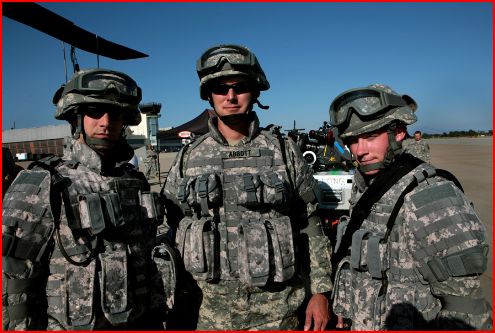


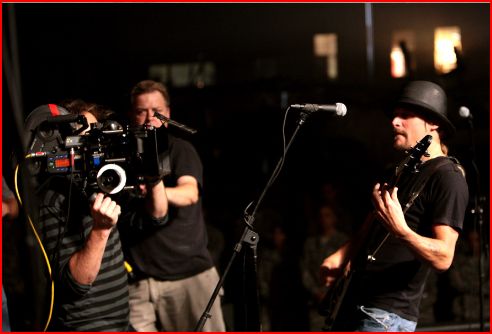
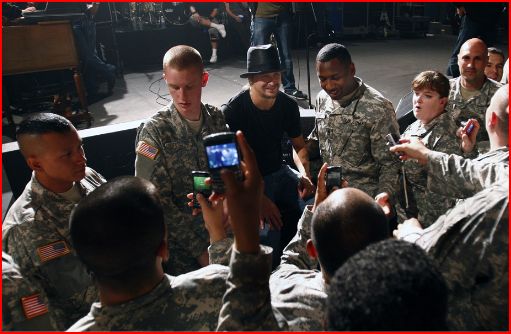
Some observations on the marketing of military service:
First, the glorification of military service is an American phenomenon. (See this post which features an American and a Swedish military recruitment commercial back-to-back. The difference is quite amazing.) In this video, the glorification is particularly acute when the light-skinned driver of the Hummer manages to avoid hitting the blue-eyed, olive-skinned, dark-haired boy and then comes out with his giant gun to kick the ball back to him, inspiring a look of awe from the child who’s country he is likely (given the politics in the last 8 years) invading. We’re left, assured, that the U.S. military are all around good folk.
Second, in this case we have military service being marketed with celebrity tie-ins. The website deliberately blurs the line between being a famous rock star, a celebrated race car driver, and a member of the National Guard. Similarly, this Air Force recruitment ad blurs the line between various extreme sports and military service:
These links between military service, skateboarding, and being a rock star are disingenuous, to say the least. And it reminds me of a series of recruitment ads I’ve been seeing lately that highlight the super cool jobs you could end up doing in the Air Force (like being a fighter pilot). I don’t know about you, but both of my family members who joined the military (in their cases, the Army) ended up being bus drivers.
Third, which celebrities are being used to market the National Guard tells us something about who they are trying to recruit. Clearly, they are reaching out to young, working class, perhaps rural, white men. This is not part of the National Guard marketing aimed specifically at this group, the entire National Guard website (warning: noisy), at this time, is entirely devoted to this theme. It speaks to who fights American wars? Studies have shown that, while once military service was required of elites, this changed during Vietnam. Today military service is overwhelmingly performed by working- and middle-class men.
Finally, the re-framing of the role from “soldier” to “warrior,” one who wages war, is very interesting. I’d love to hear your thoughts about this.
More fodder for discussion, if you need it:
Lisa Wade, PhD is an Associate Professor at Tulane University. She is the author of American Hookup, a book about college sexual culture; a textbook about gender; and a forthcoming introductory text: Terrible Magnificent Sociology. You can follow her on Twitter and Instagram.

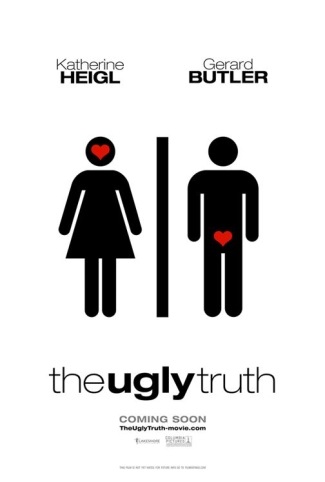 Amanda at Pandagon offers
Amanda at Pandagon offers 